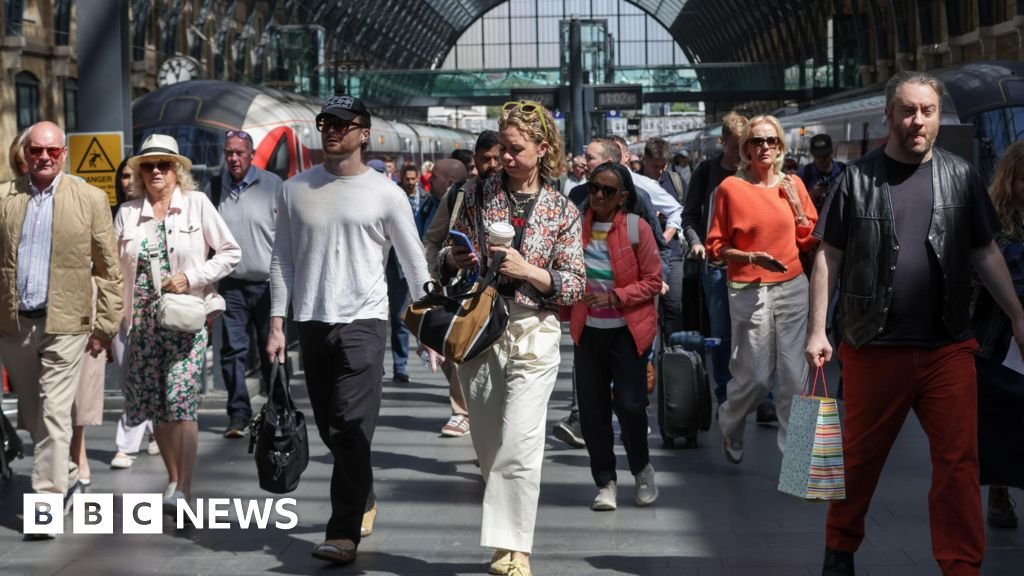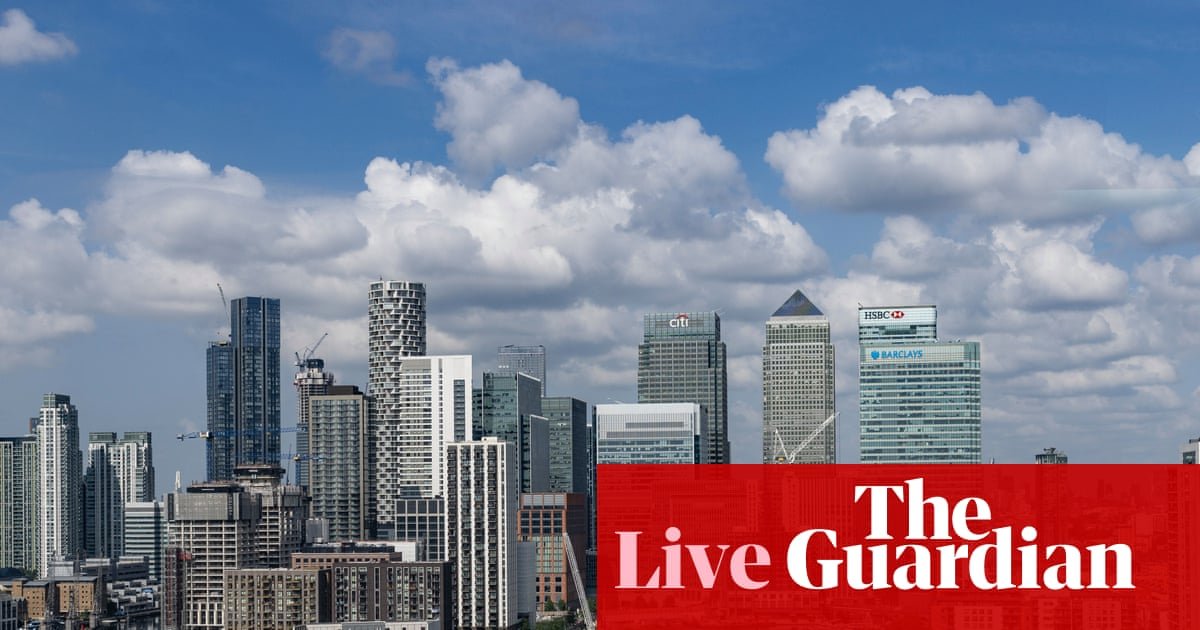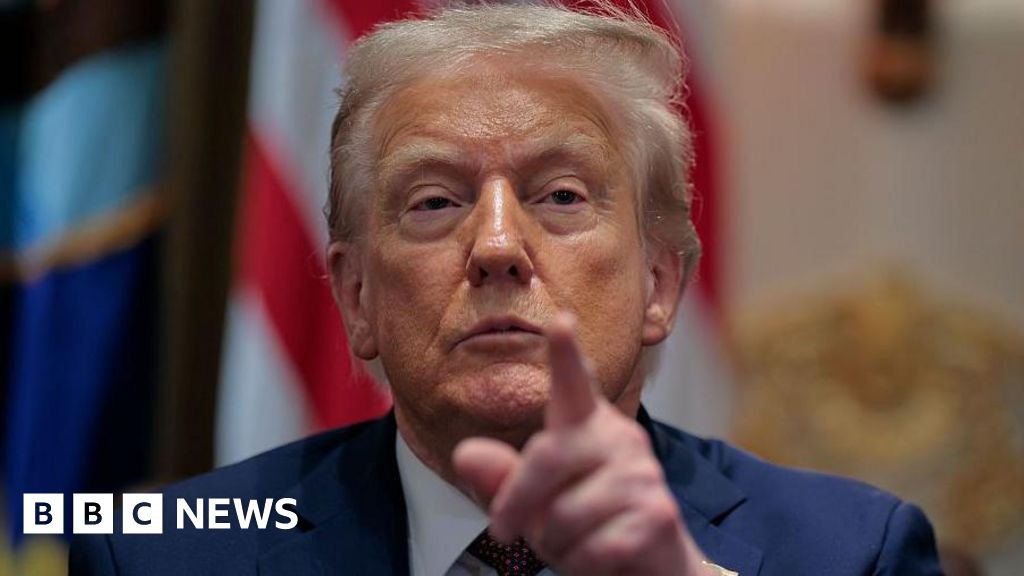Business
Travellers warned of bank holiday disruption

Millions of people in the UK face travel disruption on busy roads and due to a rail strike and engineering weeks this bank holiday weekend.
There is likely to be significant disruption on the rail network on the CrossCountry route from Aberdeen to Cornwall because of a strike by the RMT union over pay, safety and staffing.
The RAC has also warned roads will be busy on Friday, with three million getaway journeys planned, and particularly heavy traffic on the M5 between Bristol and Devon.
Monday is a bank holiday in England, Wales and Northern Ireland.
Network Rail has advised all passengers to check their journeys before travelling due to the strikes and rail works.
There will be no CrossCountry services on Saturday, meaning there will be no direct trains connecting Birmingham to Leicester, Derby or Nottingham.
On Sunday, although industrial action is not taking place, alterations and cancellations are to be expected.
On Monday, there will be a strike, but there will be limited services on all Cross Country lines between 08:00 BST and 18:00.
Trains between Birmingham, Reading and the South Coast will not run, as well as services between Leicester, Cambridge and Stansted airport.
There will only be a very limited service to the south west and north of York.
Meanwhile, on the East Coast Main Line, LNER will have no direct trains to London King’s Cross on Sunday, with engineering projects taking place on other routes too.
On Saturday, western England, Wales, Northern Ireland and Scotland will see sunny spells in the afternoon but also a chance of showers. Scotland will also have some sunny spells.
Sunday will be mainly dry with spells of sunshine and a few areas of cloud, along with the chance of a light shower in the north.
Central and Southern England will be the warmest spots over the weekend, with temperatures predicted to be between 23 and 25C.
Bank Holiday Monday will be a largely dry and warm day with lots of sunshine. Rain will move into Northern Ireland in the evening.
Business
UK long-term borrowing costs on brink of 27-year high; gold price hits record – business live | Business

Key events
Traders have also been piling into silver, driving it over $40 per ounce for the first time since 2011.
KCM Trade’s chief market analyst, Tim Waterer, says:
“Silver is making a move higher in response to expectations of lower U.S. rates, while a tight supply market is helping to maintain an upward bias.”
Gold hits record high over $3,500/oz
The gold has hit a new alltime high, as traders turn to precious metals as a safe-haven asset in inflationary times.
While government bond prices are falling (driving up yields), the spot price of gold has climbed over the $3,500 mark to hit $3,508.50 an ounce early this morning, with investors flocking to this traditional safe-haven asset.
The rally comes as the markets anticipate interest rate cuts in the US later this year, which has weakened the dollar.
Traders have been piling into gold-focused exchange traded funds (ETFs), which lifts demand for the precious metals, while some central banks have been adding to their own holdings.
Worries about inflation have also lifted demand for gold, as Tony Sycamore, IG analyst, explains:
This week’s rally in gold and silver began mid-morning yesterday and coincided with a social media post by US President Trump who claimed that prices in the USA are “WAY DOWN” with virtually no inflation.
However, this narrative contrasts with recent economic data showing persistent inflationary pressures remain and comes as President Trump continues his dovish reshaping of the Fed Board as he pushes for sooner and deeper Fed interest rate cuts, into an economy which is growing at ~3.5% in Q3 according to the latest Atlanta Fed GDP Now reading
UK long-term borrowing costs on brink of 27-year high
Good morning, and welcome to our rolling coverage of business, the financial markets and the world economy.
The bond vigilantes are back, piling pressure on governments in London and Paris amid fears over fiscal sustainability.
The UK’s long-term cost of borrowing is on the verge of hitting its highest level since 1998. Yesterday the yield, or interest rate, on Britain’s 30-year debt rose as high as 5.646%, just a whisker from the 27-year high of 5.649% set during trading on 9th April.
That pushes up the cost of adding to Britain’s national debt, eating into the headroom available to chancellor Rachel Reeves as she draws up the autumn budget.
Bond vigilantes punish governments for what they consider to be bad policy choices, by shunning debt auctions or by demanding higher and higher rates of return before buying government bonds.
Fiscal concerns have been pushing up long-term borrowing costs globally in recent weeks; September is traditionally a tough month for the bond markets, so the next few weeks could be volatile.
UK debt is in the firing line due to fears that the economy will slow later this year, and that Reeves faces a budget black hole that will need to be filled through either tax rises or spending cuts.
As Deutsche Bank’s chief UK economist, Sanjay Raja, told clients:
At the risk of sounding a little dramatic, the Autumn Budget will be a defining moment for the UK. On our estimates, a fiscal hole worth GBP 20-25bn will need to be filled in November.
Kathleen Brooks of XTB says August was “dreadful” for UK bonds, explaining:
This summer’s drip feed of potential tax rises has not gone over well with voters, and Labour has been hemorrhaging support to Reform in recent weeks. Essentially voters don’t want tax rises, while Labour backbenchers don’t want spending cuts, but something will have to give.
Political turmoil in Paris has pushed France’s bond yields higher in recent weeks too, widening the gap with Germany. The French government could fall next week, if it loses a confidence vote called over unpopular spending cuts.
French 30-year bond yields hit a multi-year high of nearly 4.5% yesterday.
France’s 30-year government bond yield is now the highest since 2008 (green). We’re in a new world. COVID landed us with a global debt overhang. There’s no room for big deficits now, because markets’ appetite for more debt is low. The right response is to reform. Not cap yields. pic.twitter.com/jzYuD4evLy
— Robin Brooks (@robin_j_brooks) September 1, 2025
ING fear French bonds could continue to be pummelled by political uncertainty, telling clients:
The spread between French government bonds (OATs) and the German equivalent (Bunds) widened materially on the prospect of a confidence vote, and we still see the balance of risk tilted to further widening. The current 10Y spread is at a similar level to that seen in July 2024, when French President Emmanuel Macron called snap elections and OATs sold off significantly in response.
The agenda
Business
Trump says India offered to remove tariffs on US goods

US President Donald Trump says India has offered to cut its tariffs “to nothing” even as he called the current trade stalemate with the country “a totally one sided disaster”.
US tariffs of 50% on goods from India – which includes 25% penalty for Delhi’s refusal to stop buying oil from Russia – took effect last week.
India has not responded to Trump’s latest comment but such war of words over Russian oil has caused Delhi-Washington ties to hit an all-time low.
Trump’s comment coincides with Indian Prime Minister Narendra Modi attending the Shanghai Co-operation Organisation (SCO) summit in Tianjin where he met Chinese President Xi Jinping and Russian President Vladimir Putin.
Washington says Delhi has been indirectly funding Russia’s war in Ukraine.
“India buys most of its oil and military products from Russia, very little from the US,” Trump wrote, adding Delhi should have cut tariffs “years ago”.
Delhi has previously said that oil supply from Russia was vital to meet the energy needs of its vast population.
It has also called the tariffs “unfair, unjustified and unreasonable”.
Last week, the country’s commerce minister, Piyush Goyal, said India “will neither bow down nor ever appear weak” in its economic relationships with other countries.
He also said the country was ready to a have a free-trade agreement with anyone who wanted it.
On Monday, Trump wrote: “What few people understand is that we do very little business with India, but they do a tremendous amount of business with us. In other words, they sell us massive amounts of goods, their biggest “client,” but we sell them very little – Until now a totally one sided relationship, and it has been for many decades.”
The US was, until recently, India’s largest trading partner and the tariffs have sparked fears that exports and growth in the world’s fifth largest economy could suffer.
At the SCO summit, Modi was seen shaking hands with Putin ahead of a meeting hosted by Xi.
The SCO, whose members include China, India, Iran, Pakistan and Russia, is seen as a challenge to Trump and US dominance on a global level.
Putin and Modi later spent 45 minutes inside the Russian leader’s car – after which Modi posted a picture of their journey alongside the compliment to Putin.
The Indian PM said he had an “insightful” exchange with Putin.
Business
France has a massive debt crisis. So why is it spending billions a year subsidising business? | Alexander Hurst

As someone who has always been against austerity, I find France, with a national debt at 114% of GDP and a budget deficit of 5.8% of GDP, a conundrum. Despite years of denunciation from his left and far-right opponents that Macron has engaged in “ultraneoliberalism”, there hasn’t been any. Not on a macro level, anyway, where both French government spending (57.3% of GDP) and tax receipts (51.4% of GDP) are among the highest in the world, including social spending, which outpaces any of its European neighbours.
At the same time, it’s impossible to have spent the past decade in France without encountering the widely shared perception and accusation that public services are in decline. Doctors and nurses denounce a labour shortage in public hospitals; people who live in rural areas denounce the closing of rural train lines; students and academics denounce a lack of resources for public universities, many of which are dealing with outdated infrastructure, and for research.
Some of the responses to this aren’t strictly financial. Nearly every country in the world is dealing with a shortage of medical personnel, which in France has been exacerbated by caps on medical school admissions that were finally lifted in 2020. And over the past 25 years, France has seen an increase in urbanisation, from 76% to 82%. Maintaining the same level of transportation and other services to shrinking rural towns and villages would mean far higher spending per person than for those who live in cities, ultimately diverting resources from something (whatever, and wherever, that is) and raising a fundamental question of fairness. The French, for their part, see the downside to the concentration of policymaking in Paris and overwhelmingly want more decentralisation.
Nevertheless, somehow in a country that spends a greater percentage of its budget than any other on all of these areas combined, there’s not enough money for anyone, and most are – unlike their Nordic peers – to some extent, dissatisfied. And the debt and deficit, of course, spiral into unsustainable levels. What, then, is going on?
The far right blames immigration and promotes a spurious narrative that asylum seekers are to blame for the strain on social services and public resources. The centrist prime minister, François Bayrou, wants to nibble at the edges with cuts to everything, to find €44 billion a year in savings, culminating in the absurd proposal to do away with two public holidays (a self-destructive political act so outlandish that I originally, and wrongly, I guess, assumed it was only suggested to be sacrificed in figure negotiations). The left, for its part, somewhat more reasonably argues for taxing wealth, while in practice potentially extending the proposed tax increase even to people making over €20,584 a year and remaining unmoved by the legitimate complaint that self-employed workers, entrepreneurs, small business owners and startups are slammed by paperwork and the administrative costs of expanding.
In the midst of the disagreement over what to do about France’s finances – a debate that threatens to bring down the current French government when Bayrou holds a confidence vote on 8 September – almost nobody is having an honest conversation about the single largest component of the French government’s discretionary spending: the €211bn spent every year subsidising businesses to create jobs in a country where letting go of workers is difficult and costly, and where businesses are, as a result, hesitant to hire. France has created an unnecessarily rigid labour market (notice periods can reach up to two to three months), has ended up with an unemployment rate persistently higher than the EU average and salaries that are not progressing fast enough to keep anyone content, and spends €211bn (that is, more than on education) trying to compensate. If France instead pursued Danish-style “flexicurity”, how much of that €211bn might otherwise be split between cutting the deficit and boosting health, education and green energy infrastructure?
Let me get something on the record before I am inevitably misunderstood. Not every euro of this should be castigated: the French model of heavy state intervention in the economy is far from being misplaced. It’s one reason why, for all its problems, France maintains what may be Europe’s only “full spectrum” economy, from agriculture to AI. And if anything, it is proving to be more and more relevant as the order of the day; this has always been the way that China functioned, and it’s increasingly the way that the US is functioning.
Capitalism needs direction. As just one example, in undirected capitalism, we end up with a confounding situation where different geographies race to the bottom to draw investment in datacentres that are inevitably powered by new gas turbines and drain local water resources, rather than seeing regulation and incentives direct all of them to Iceland, where they could be powered by its more-than-sufficient geothermal energy (and the gains distributed).
In the deeply imperfect past, some of this “direction” was provided by internationally agreed rules and treaties, which allowed small states to be nimble and dynamic. This has given way to a new world where nations – or a club of nations – of sufficient size can be protectionist externally and thus allow for nimble dynamism and innovation within their own internal rules. France’s problem is thus one of scale. It, like every other European nation, is too small to provide such protective external walls – a task that must fall to the EU. At least, should European leaders finally accept that the old world they cling to is not coming back.
The EU cannot succeed in its current form in a world of power rather than rules, and where the US and China view geopolitics and economics holistically and don’t hesitate to throw their weight in one area behind their interests in another. The EU can, on the other hand, succeed if it adapts a classically French approach. It’s not just that France needs a wealth tax, it’s that the EU needs one; it’s not just that the French space agency needs more funding, it’s that the European Space Agency does; it’s not just that France should invest more in green energy, it’s that the EU as a whole needs energy independence through renewables.
after newsletter promotion
The irony is that Europe won’t be pushed in this direction unless France has the heft to nudge it there. And to do that, France needs an economy that is performing and a political class capable of having an honest and long-term conversation, rather than scapegoating, gimmicks, or same old, same old.
-

 Business4 days ago
Business4 days agoThe Guardian view on Trump and the Fed: independence is no substitute for accountability | Editorial
-
Tools & Platforms3 weeks ago
Building Trust in Military AI Starts with Opening the Black Box – War on the Rocks
-

 Ethics & Policy1 month ago
Ethics & Policy1 month agoSDAIA Supports Saudi Arabia’s Leadership in Shaping Global AI Ethics, Policy, and Research – وكالة الأنباء السعودية
-

 Events & Conferences3 months ago
Events & Conferences3 months agoJourney to 1000 models: Scaling Instagram’s recommendation system
-

 Jobs & Careers2 months ago
Jobs & Careers2 months agoMumbai-based Perplexity Alternative Has 60k+ Users Without Funding
-

 Funding & Business2 months ago
Funding & Business2 months agoKayak and Expedia race to build AI travel agents that turn social posts into itineraries
-

 Education2 months ago
Education2 months agoVEX Robotics launches AI-powered classroom robotics system
-

 Podcasts & Talks2 months ago
Podcasts & Talks2 months agoHappy 4th of July! 🎆 Made with Veo 3 in Gemini
-

 Education2 months ago
Education2 months agoAERDF highlights the latest PreK-12 discoveries and inventions
-

 Podcasts & Talks2 months ago
Podcasts & Talks2 months agoOpenAI 🤝 @teamganassi

